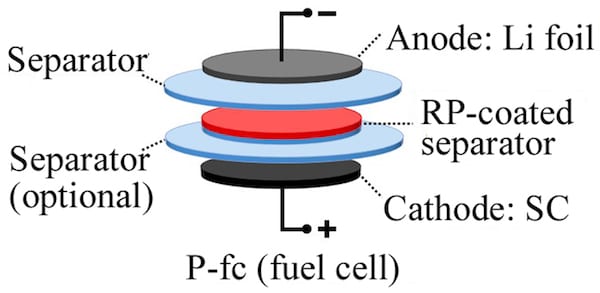Rice University scientists use red phosphorus as spy to keep lithium dendrites in check
Rice University scientists have taken the next step toward the deployment of powerful, rechargeable lithium metal batteries by making them safer and simpler to manufacture. The Rice lab of chemist James Tour made test cells with a coat of red phosphorus on the separator that keeps the anode and cathode electrodes apart. The phosphorus acts as a spy for management systems used to charge and monitor batteries by detecting the formation of dendrites, protrusions of lithium that can cause them to fail.
 A layer of red phosphorus in rechargeable lithium metal batteries can signal when damaging dendrites threaten to create a short circuit. The technique developed at Rice University could lead to more powerful lithium metal batteries. Courtesy of the Tour Group
A layer of red phosphorus in rechargeable lithium metal batteries can signal when damaging dendrites threaten to create a short circuit. The technique developed at Rice University could lead to more powerful lithium metal batteries. Courtesy of the Tour Group
Better red than dread: Barrier keeps batteries safe

